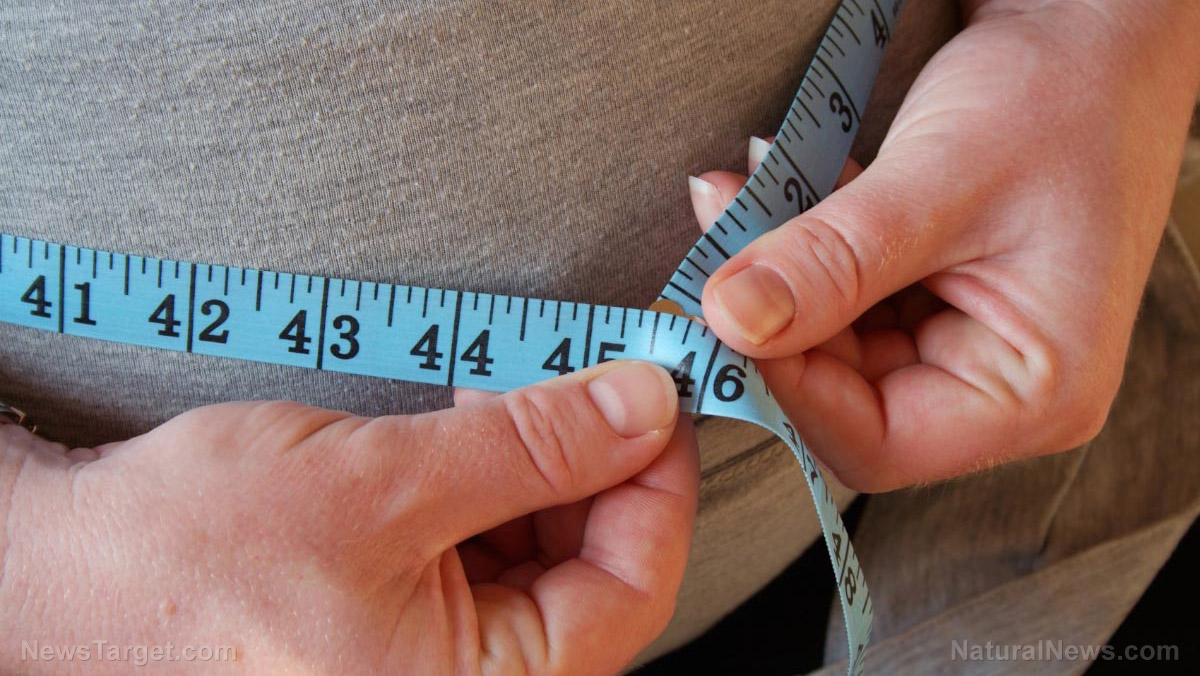Researchers have developed a “medicated skin patch” that burns fat to treat metabolic disorders
03/11/2019 / By Michelle Simmons

Researchers developed a skin patch that can burn fat to treat metabolic disorders.
The medicated skin patch can turn energy-storing white fat into energy-burning brown fat locally while raising the body’s metabolism. It could be used to burn off pockets of unwanted fat like “love handles” and treat metabolic disorders like obesity and diabetes. Trials with mice showed as much as 20 percent of fat were reduced in treated areas.
For years, researchers have been searching for therapies that can transform an adult’s white fat into brown fat, a process called browning, as a treatment for obesity and diabetes. This naturally happens when the body is exposed to cold temperatures.
“There are several clinically available drugs that promote browning, but all must be given as pills or injections,” said study co-leader Li Qiang, an assistant professor of pathology and cell biology at Columbia University Medical Center.
“This exposes the whole body to the drugs, which can lead to side effects such as stomach upset, weight gain, and bone fractures. Our skin patch appears to alleviate these complications by delivering most drugs directly to fat tissue,” Qiang said.
The medicated skin patch is about a centimeter-square and contains dozens of microscopic needles. When applied to the skin, the needles painlessly pierce it and gradually release the drug that is encased in nanoparticles, each roughly 250 nanometers (nm) in diameter.
“The nanoparticles were designed to effectively hold the drug and then gradually collapse, releasing it into nearby tissue in a sustained way instead of spreading the drug throughout the body quickly,” said patch designer and study co-leader Zhen Gu, associate professor of joint biomedical engineering at the University of North Carolina and North Carolina State University.
The researchers tested the skin patch in obese mice on each side of the lower abdomen, one with either of the two drugs — rosiglitazone or beta-ardrenergic receptor agonist – and another without. The mice treated with either of the two drugs had a 20 percent reduction in fat on the treated side compared to the untreated side. They also had significantly lower fasting blood glucose levels than untreated mice. On the other hand, the normal, lean mice revealed that treatment with either of the two drugs increased the animal’s oxygen consumption by about 20 percent compared with the untreated control group.
This suggested that the observed metabolic changes and fat reduction were due to an increase in browning in the treated mice. According to researchers, this discovery will not only be beneficial to the cosmetic industry, but also to the medical industry where it can be used to treat metabolic disorders. (Related: “Brown” Fat Cells May Aid in Weight Loss.)
“What’s much more important is that our patch may provide a safe and effective means of treating obesity and related metabolic disorders such as diabetes,” said Qiang.
The researchers are currently studying which drugs, or combination of drugs, work best to promote localized browning and increase overall metabolism.
Brown fat versus white fat
There are two types of fat in humans: brown and white fat. Brown fat is composed of several small lipid (fat) droplets and a large number of iron-containing mitochondria, the cell’s heat-burning engine. It burns calories to generate heat, which is why it is also referred to as the “good” fat.
On the other hand, white fat is composed of a single lipid droplet and has far less mitochondria and blood vessels, which results in its lighter white or yellow appearance. It originates from the connective tissues, and is the most predominant form of fat in the body. It acts as a cushion for body organs, thermal insulator, and produces estrogen and leptin.
Newborns have a relative abundance of brown fat which protects them against exposure to cold temperatures; most of these fats are lost by adulthood.
Sources include:
Tagged Under: brown fat, browning, fats, health, medical tech, metabolic disorders, obesity, skin patch, white fat




















